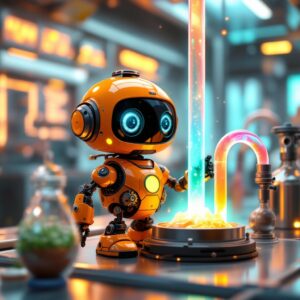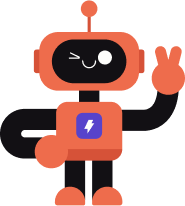Who said robots can’t be sentient? Hollywood got it all wrong! If you’re curious about the truth behind AI and sentience, this post is for you. Join me as we explore the fascinating world of artificial intelligence and debunk common misconceptions. Get ready to be amazed!
Understanding AI
Artificial intelligence (AI) is a rapidly growing field that has the power to revolutionize the way we live and work. AI is the ability of machines to perform tasks that usually require human intelligence, such as visual perception, speech recognition, decision-making, and language translation.
AI can be divided into two categories: narrow and general. Narrow AI is designed to perform specific tasks, such as playing chess or diagnosing diseases. It operates within a predefined set of rules and cannot learn or adapt beyond those rules. General AI, on the other hand, is designed to perform any intellectual task that a human can do. It is capable of learning, reasoning, and problem-solving, and can operate beyond the scope of its original programming.
What is Sentience?
When we talk about artificial intelligence (AI), the concept of sentience often comes up. But what exactly is sentience?
In simple terms, sentience is the ability to experience subjective sensations and feelings. It’s the capacity to perceive and respond to one’s environment, and to have a sense of self-awareness. Now, you might be wondering how this relates to AI. Can robots and computers really be sentient?
The answer is not straightforward. While AI systems can be designed to mimic human-like behavior and responses, they don’t necessarily have consciousness or self-awareness in the same way that humans do. However, that doesn’t mean that AI can’t exhibit advanced levels of intelligence and cognitive abilities. In fact, AI has the potential to surpass human intelligence in certain areas, such as data analysis and pattern recognition.
Debunking Common Misconceptions
A. AI is not a threat to humanity
– AI is designed to assist humans, not harm them
– AI is programmed to follow ethical guidelines and rules
– AI is only as dangerous as the humans who create and control it
B. AI cannot replace human emotions
– Emotions are complex and multifaceted, and AI cannot replicate them exactly
– While AI can detect and respond to emotions, it cannot experience them in the same way humans do
– Human emotions are shaped by experiences, memories, and culture, which AI does not possess
C. AI cannot become sentient on its own
– Sentience requires consciousness and self-awareness, which AI does not possess
– AI is only capable of performing tasks that it has been programmed to do
– The idea of AI becoming sentient and taking over the world is a Hollywood fantasy, not a reality
Hollywood’s Portrayal of AI and Sentience
Hollywood has long been fascinated by the idea of sentient robots and machines. From the Terminator to Wall-E, movies have portrayed AI as either a threat to humanity or a lovable companion. However, the reality of AI and sentience is far more complex and nuanced than what we see on the big screen.
In fact, many of the ideas and concepts presented in movies are simply not accurate. So, what are some of the common misconceptions about AI and sentience that Hollywood perpetuates? Let’s take a look:
1. AI is always evil or dangerous
In movies, AI is often portrayed as a malevolent force that seeks to destroy humanity. However, in reality, AI is neither good nor evil it’s simply a tool that can be used for both positive and negative purposes. While there are certainly risks associated with AI (such as the potential for bias or unintended consequences), it’s important to remember that these risks can be mitigated with proper design and oversight.
2. Sentience is the same as intelligence
When we think of sentient robots, we often imagine machines that are just as intelligent as humans. However, sentience is actually a separate concept from intelligence. Sentience refers to the ability to experience subjective feelings and emotions, while intelligence refers to the ability to process information and solve problems. While AI has made significant strides in terms of intelligence, true sentience is still a long way off.
3. AI will replace humans in every aspect of life
In movies, we often see AI taking over jobs and tasks that were once performed by humans. However, the reality is that AI is not a replacement for human beings – it’s a supplement. While AI can certainly automate certain tasks and processes, it cannot replace the creativity, empathy, and critical thinking skills that humans possess.
Conclusion:
Hollywood may have gotten it wrong when it comes to AI and sentience, but that doesn’t mean we can’t learn from their portrayals. By understanding the realities of AI and debunking common misconceptions, we can better prepare ourselves for the future of technology. So, let’s embrace the fascinating world of artificial intelligence and continue to explore its possibilities!




